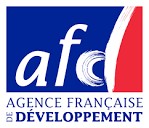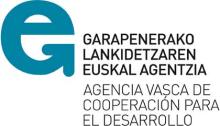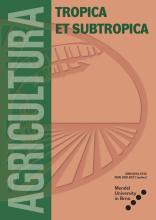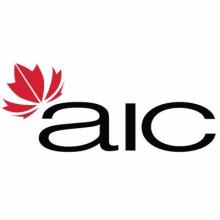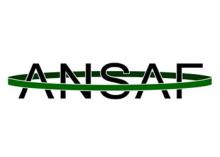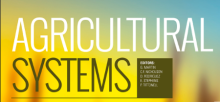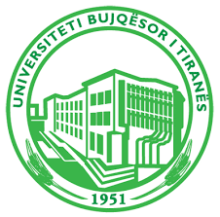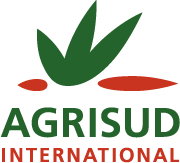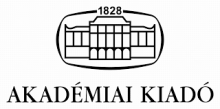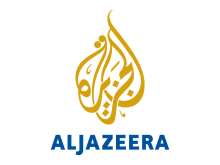La Biblioteca de la Tierra incluye recursos de más de 1.890 proveedores de información nacionales e internacionales. Aprenda más sobre las organizaciones e instituciones que utilizan el Land Portal para compartir sus investigaciones, datos e historias con acceso abierto.
AgEcon Search
AgEcon Search: Research in Agricultural and Applied Economics collects, indexes, and electronically distributes full text copies of scholarly research in the broadly defined field of agricultural economics including sub disciplines such as agribusiness, food supply, natural resource economics, environmental economics, policy issues, agricultural trade, and economic development.
The majority of items in AgEcon Search are working papers, conference papers, and journal articles, although other types such as books chapters and government documents are included. AgEcon Search will serve as the permanent archive for this literature and encourages authors and organizations to use this electronic library as the storehouse for additional appropriate scholarly electronic works.
AgEcon Search is co-sponsored by the Department of Applied Economics and the University Libraries at University of Minnesota and the Agricultural and Applied Economics Association.
The site has received encouragement and financial support from:
Agricultural Economics Reference Organization
Agricultural and Applied Economics Association
European Association of Agricultural Economists
Farm Foundation
International Association of Agricultural Economists
USDA Economic Research Service
AgEcon Search is part of the University of Minnesota's Digital Conservancy, which provides stewardship, reliable long-term access, and broad dissemination of the digital scholarly and administrative works of the University of Minnesota faculty, departments, centers and offices.
Papers and articles downloaded from AgEcon Search may be used for non-commercial purposes and personal study only. No other use, including posting to another Internet site, is permitted without permission from the copyright owner, or as allowed under the provisions of Fair Use, U.S. Copyright Act, Title 17 U.S.C.
AgEcon Search does not hold the copyright to articles, working papers, conference papers, or other materials available in the database. Copyrights may be held by any of the following: individual authors, multiple authors, organizations, institutions, or publishers.
History
AgEcon Search began in 1995 as an experiment to see if it were possible to use the internet to archive, index and deliver on demand, full text working papers produced by university agricultural economics departments. The first papers were from agricultural economics departments at Minnesota and Wisconsin. These early papers predated the World Wide Web and were mounted on a GOPHER server in WordPerfect format. The project was (and still is) a cooperative project of the University of Minnesota Libraries, the Department of Applied Economics at the University of Minnesota and the Agricultural and Applied Economics Association (AAEA). The Farm Foundation and the Economic Research Service of the U.S. Department of Agriculture provided financial support in the beginning of the project. Patricia Rodkewich and Louise Letnes managed AgEcon Search until Patricia's retirement in 2001, when Julie Kelly joined the AgEcon Search team. Erik Biever also served on the original AgEcon Search team, providing valued technical services and guidance. The members of the Agricultural Economics Reference Organization endorsed the efforts of AgEcon Search early on and have been instrumental in expanding the use of AgEcon Search in their respective institutions.
Since its inception AgEcon Search has operated as a distributed network, with each institution designating a member of their organization to submit papers on their behalf. With this model, costs for maintaining the system were kept low and institutions do not have to pay membership fees for participation. In the cases where an institution had no central person to act as the network member, a fee has been charged for AgEcon Search staff to submit papers. The first organization to choose this option was the Agricultural and Applied Economics Association, which since 1997 has been contracting with AgEcon Search to post its annual conference papers.
Agence Française de Développement
L’AFD (French Development Agency) finance et accompagne des projets et programmes de développement qui soutiennent une croissance économique plus durable et partagée, améliorent les conditions de vie des plus pauvres, contribuent à la préservation de la planète et aident à stabiliser les pays fragiles ou en sortie de crise.
Ses équipes, basées à Paris et Marseille et dans son réseau de soixante-douze agences et représentations dans les pays en développement et dans les Outre-mer français , lui permettent d’offrir à ses partenaires des financements, des instruments d’analyse et de couverture du risque et une ingénierie de formation et de renforcement des capacités.
Sa filiale Proparco soutient les investissements privés.
L’AFD collabore également avec les réseaux académiques français et internationaux pour alimenter les débats et réflexions prospectives sur le développement.
Elle assure la gestion du Fonds français pour l’environnement mondial (FFEM) , qui cofinance des projets conciliant environnement et développement.
Agencia Ecologista de Información Tegantai
La Agencia Ecologista de Información TEGANTAI, nace en el año 2009 con un objetivo fundamental: proporcionar a la ciudadanía y a los medios de comunicación elementos de investigación en ecología popular y medio ambiente. Nuestra filosofía se enmarca dentro de la corriente del ecologismo popular y la comunicación para el cambio social. Creemos con firmeza en la libertad de expresión como una herramiental fundamental para fortalecer los procesos democráticos en el Ecuador y en América Latina.
Nuestros ejes de trabajo son esencialmente tres:
- Sostenemos que la información que se genera en las zonas de conflicto ambiental en el Ecuador, debe ser difundida a través de las herramientas informacionales que ya son usadas en la actualidad por diferentes movimientos y organizaciones sociales, fortaleciéndolas y agilizando el acceso a la información creada.
- También planteamos que el acceso a la información en temas de ecología popular y medio ambiente, debe ser difundida a nivel local, nacional y regional garantizando el acceso de la ciudadanía, pero sobre todo priorizando la información generada por el colectivo de comunicadores populares que generosamente colaboran con nuestra organización.
- El tercer eje se refiere al Cambio Climatico y la Deuda Ecológica como ejes transversales de nuestro trabajo comunicacional y de investigación. Estamos convencidos y convencidas de que históricamente ha existido un proceso que no ha sido cubierto por los medios de comunicación de una forma adecuada, y proponemos un nuevo tipo de cobertura de eventos y difusión de información que considere a todos los actores de los procesos climáticos.
Agencia Nacional de Tierras Colombia
Creación de la Agencia Nacional de Tierras
El 7 de diciembre de 2015 fue expedido el Decreto 2363 “Por el cual se crea la Agencia Nacional de Tierras, ANT, y se fija su objeto y estructura”, en un esfuerzo del Gobierno nacional para consolidar la nueva institucionalidad que responderá a los retos del posconflicto en lo concerniente al desarrollo del campo y la implementación de los acuerdos suscritos en el marco del proceso de paz.
Así, en el Decreto quedó consignado el objetivo fundamental de esta Agencia, la máxima autoridad de tierras del Estado:
“La Agencia Nacional de Tierras, como máxima autoridad de las tierras de la Nación, tendrá por objeto ejecutar la política de ordenamiento social de la propiedad rural formulada por el Ministerio de Agricultura y Desarrollo Rural, para lo cual deberá gestionar el acceso a la como factor productivo, lograr la seguridad jurídica sobre ésta, promover su uso en cumplimiento de la función social de la propiedad y administrar y disponer de los predios rurales de propiedad de la Nación”.
En términos generales, esta Agencia garantizará el acceso a la tierra para los campesinos que no la tienen o que tiene muy poca e insuficiente para su sustento. Para quienes sí tienen tierra pero no la tienen legalizada, la Agencia le ayudará a formalizar su propiedad. Y para quienes tienen tierra y la tienen formalizada, la Agencia garantizará que se le dé un uso adecuado en cuanto al cumplimiento de la función social de la tierra y la explotación ambientalmente responsable de la misma.
También se pondrá en marcha la figura del Inspector de Tierras dotándola de todas las herramientas que permitan hacerles veeduría a los procesos de manera minuciosa. Sin embargo, y para cerrarles el paso a los corruptos, implementará también una gestión abierta al público y participativa de modo que las comunidades en las regiones, y de manera organizada, puedan participar y vigilar las actuaciones de la Agencia y de sus funcionarios.
Misión
Como máxima autoridad de tierras, consolidar y mantener el ordenamiento social de la propiedad rural, para mejorar las condiciones de vida de la población.
Visión
Para el año 2030 la Agencia Nacional de Tierras habrá ordenado socialmente todo el territorio rural del país.
Agencia Vasca de Cooperación para el Desarrollo
La Agencia Vasca de Cooperación para el Desarrollo es un ente público de derecho privado, la herramienta del Gobierno Vasco para planificar y gestionar las políticas de desarrollo. Opera según los principios y objetivos expuestos en la Ley de Cooperación, desarrollados en su Plan Director.
Nuestros objetivos hablan de la misión de la cooperación internacional vasca: contribuir a la lucha contra la pobreza, la promoción del desarrollo humano, la educación para el desarrollo en Euskadi, la equidad de genero en el modelo organizacional, la acción humanitaria en contextos de desastres y conflictos, y el fomento de la acción cooperante.
Para llevar a cabo esta visión, disponemos de diferentes herramientas: ayudas a proyectos y programas de cooperación para el desarrollo, becas de formación y de apoyo a la actividad cooperante, fondos de emergencia, unidad de género, publicaciones, etc.
Una parte sustancial de su actividad se realiza en colaboración con agentes, tanto sociales (ONG, academia, etc.) como públicos (otras instituciones, tanto en Euskadi como en el mundo).
La actividad de la Agencia es heredera de una larga y exitosa tradición en Euskadi. El compromiso público y de la sociedad con la cooperación es una seña de identidad de nuestro país, y se materializa año tras año en una intensa actividad (pública y social), soportada por dotaciones presupuestarias que superan la media de las instituciones de nuestro entorno cercano, incluso en estos años de crisis.
Agenzia delle Entrate Ministero dell'Economia e delle Finanze
L'Agenzia delle Entrate, operativa dal 1° gennaio 2001, nasce dalla riorganizzazione dell'Amministrazione finanziaria a seguito del Decreto legislativo n° 300 del 1999 - pdf.
Ha un proprio statuto e appositi regolamenti che regolano l'amministrazione e la contabilità.
Gli organi dell'Agenzia sono costituiti dal Direttore, dal Comitato di gestione, dal Collegio dei Revisori dei conti.
Dal 1 dicembre 2012 l'Agenzia delle Entrate ha incorporato l’Agenzia del Territorio (articolo 23-quater del Dl 95/2012).
Agri Malawi
The Agri-Malawi Magazine is an agricultural focused publication with dynamic online platform with its editorial office based in Blantyre, Malawi with a great network of representative writers and journalist across major cities in the country.
Agricultura Familiar e Agroecologia
A AS-PTA – Agricultura Familiar e Agroecologia é uma associação de direito civil sem fins lucrativos que, desde 1983, atua para o fortalecimento da agricultura familiar e a promoção do desenvolvimento rural sustentável no Brasil. A experiência acumulada pela entidade ao longo desses anos permitiu comprovar a contribuição do enfoque agroecológico para o enfrentamento dos grandes desafios da sustentabilidade agrícola pelas famílias agricultoras. A AS-PTA participou da constituição e atua em diversas redes da sociedade civil voltadas para a promoção do desenvolvimento rural sustentável. Ao mesmo tempo em que constituem espaços de aprendizado coletivo, essas redes proporcionam ações articuladas de organizações e movimentos da sociedade para influenciar elaboração, implantação e monitoramento de políticas públicas.
Agricultura Tropica et Subtropica
AGRICULTURA TROPICA ET SUBTROPICA (ATS) is an international peer-reviewed scientific journal published under the authorization of Mendel University in Brno (MENDELU) and managed by the Faculty of Regional Development and International Studies,
- an independent, educational, research and scientific academic body of MENDELU.
The objective of the journal is to promote the science and development of plant and animal production, animal health and welfare, issues of sustainable agriculture, agricultural technology, land and water protection, forestry, agricultural economics and rural development in tropical and subtropical areas.
ATS welcomes the contribution of original research papers, review articles, short communications, and book reviews that are related to all aspects of Agriculture Science and Technology.
Agricultural & Applied Economics Association
The Agricultural & Applied Economics Association (AAEA) is a not-for-profit association serving the professional interests of members working in agricultural and broadly related fields of applied economics.
Members of the AAEA are employed by academic or government institutions, as well as in industry and not-for-profit organizations, and engage in a variety of teaching, research, and extension/outreach activities. Their work addresses a broad range of topics such as the economics of agriculture, international and rural development, resources and the environment, food and consumer issues, and agribusiness.
VISION STATEMENT
The AAEA will be the leading organization for professional advancement in, and dissemination of, knowledge about agricultural, development, environmental, food and consumer, natural resource, regional, rural, and associated areas of applied economics and business.
MISSION STATEMENT
To enhance the skills, knowledge, and professional contributions of economists who help society solve agricultural, development, environmental, food and consumer, natural resource, regional, rural, and associated applied economics and business problems.
Agricultural Institute of Canada
History
On June 2, 1920, the Canadian Society of Technical Agriculturists was formally launched. The idea of an organization dedicated to the professional aspects of Canadian agriculture caught on and branches quickly formed across the country.
By 1944 the Canadian Society of Technical Agriculturists had evolved into the Agricultural Institute of Canada. Over time, nine provincial institutes of agrologists came on board to administer the formation, recognition and control of professional groups under provincial jurisdiction.
In 1995, following almost a decade of discussion and debate, members of the Agricultural Institute of Canada voted to restructure the organization into a federation of Member Organizations.
For ninety-five years, AIC responded to the needs of its members in serving the agricultural community, playing a central role as a source of credible information and comment for the Canadian agriculture and agri-food sector.
The Institute has established itself as one of Canada’s foremost advocates for agricultural research and an important tool to facilitate the dissemination of agricultural research to academics and industry stakeholders.
In 2004 the AIC became a member-based organization once again.
AIC Membership categories include individual members as well as organizations, associations and corporate. The membership will determine views on issues as well as elect the national board.
Vision
Canadian agriculture is a global leader in stewardship of our land through science.
Mission
For the Agricultural Institute of Canada to be Canada’s Voice for Agricultural Research and Innovation
Agricultural Non-State Actors Forum
Agricultural Non-State Actors Forum (ANSAF) is a member–led forum involving organizations and individuals from the commercial sector, non-governmental (both Tanzanian and international) and from farmer groups in Tanzania. It is a forum for non-state actors to discuss and work towards solutions to improve the agriculture sector in the interests of men and women currently living in poverty.
Agricultural Systems
Agricultural Systems is an international journal that deals with interactions - among the components of agricultural systems, among hierarchical levels of agricultural systems, between agricultural and other land use systems, and between agricultural systems and their natural, social and economic environments. Manuscripts submitted to Agricultural Systems generally should include both of the following:
• substantive natural science content (especially farm- or landscape-level biology or ecology, sometimes combined with social sciences), and
• substantive analysis and discussion of the interactions within or among agricultural systems components and other systems.
Preference is given to manuscripts that address whole-farm and landscape level issues, via integration of conceptual, empirical and dynamic modelling approaches.
The scope includes the development and application of systems analysis methodologies (diagnosis, simulation and mathematical modelling, participatory modelling, multi-criteria assessment, trade-off analysis, participatory design, etc.) in the following areas:
• agroecology and the sustainable intensification of agriculture as well as transition pathways for sustainable intensification;
• decision-making and resource allocation in agricultural systems;
• the interactions between agricultural and non-agricultural landscapes;
• the multiple services provided by agricultural systems from food security to environmental services;
• adaptation and transformation of agricultural systems in the era of global change;
• development and application of tools and methods for agricultural systems design, assessment and management;
• innovation systems and multi-stakeholder arrangements that support or promote change and/or informs policy decisions; and
• big data and the digitalisation of agriculture and their effects on agriculture.
The following subjects are discouraged:
• econometric, descriptive or other statistical analyses that exclude systems considerations, landscapes, land use change studies, or other economic analyses without substantive natural science content;
• development of typologies unless the typology developed forms the basis for further systems analysis;
• results from crop or livestock trials unless from systems trials or the results address systems issues;
• studies focusing on social or political outcomes that lack a clear systems framework and direct application to agricultural systems (i.e. the farm production system or landscape, their activities or components, their interactions or synergies);
• conceptual frameworks without empirical implementation (unless submitted as a short communication);
• studies focusing on specific chemical constituents of plant or animal species or their products;
• studies of the operation or efficiency of agricultural or food processing machinery, or of agricultural supply chains without a substantive biological component;
• life cycle analysis (LCA) studies that are primarily descriptive unless LCA is combined with other types of methods that address interactions within agricultural systems or between those systems and their environment.
Such subjects are not considered for publication unless they clearly provide substantive and highly generalizable new insights regarding processes operating at farm or landscape levels or describe novel analytical methods applicable to a wide variety of agricultural systems.
The journal publishes original scientific papers, short communications, reviews, perspectives and comments. Review perspective articles and book reviews should only be submitted after consultation with the editors. Review papers generally should focus on the application of specific methods rather than descriptive analyses of agricultural production systems or supply chains.
"Perspective" articles are intended to provide a forum for authors to present a novel viewpoint on any topic falling within the journal's scope. The key feature of Perspectives is that they are future focused and are expected to stimulate discussions within the community. They may build on recent developments (e.g. published articles, conference highlights, or discuss the implications of new concepts and/or methodological approaches) but other topics will be considered. Perspectives are expected to be relatively short (the guideline length is 2000 words) and should include a short abstract, highlights, main text, references) and one figure summarizing the viewpoint or one table supporting the arguments. Perspectives should have an incisive title. Perspectives are primarily submitted following invitation from an Editor, but volunteered articles will be considered. Authors interested in submitting a Perspective article should seek pre-submission advice through the Agricultural Systems journal home page. All Perspective articles will be rigorously peer reviewed under a rapid review process to ensure short a duration between submission and publication.
Responses to Perspectives may be submitted as "Comment" articles. Comments will be published at the discretion of the Editors. They will be sent to the authors of Perspective articles to provide the opportunity to reply. Comments should not exceed 1000 words and their core message must be clear and directly related to the Perspective article. Comments are not intended to promote the writer's own research but to stimulate constructive comments, amplifications and discussion within the Agricultural Systems community.
Agricultural University of Tirana
The Agricultural University of Tirana is a public university located in Tirana, Albania. It offers education in agronomy, veterinary, forestry, ecology, agribusiness, and similar subjects.
Source: Wikipedia
Agriculture & Food Security
Agriculture & Food Security is a peer-reviewed open access journal that addresses the challenge of global food security. It publishes articles within the field of food security research, with a particular focus on research that may inform more sustainable agriculture and food systems that better address local, regional, national and/or global food and nutritional insecurity. The journal considers cutting-edge contributions across the breadth of relevant academic disciplines, including agricultural, ecological, environmental, nutritional, and socio-economic sciences, public health and policy. The scope of the journal includes, but is not limited to:
- Agricultural and environmental sciences, including genetics and systems ecology
- Animal husbandry, fisheries science and plant science
- Global change, biodiversity, climatology and abiotic stresses
- Food technology and balancing agricultural outputs across food, feed, fibre and fuel
- Economics, information sciences and decision theory
- Strategies for the implementation of new policies and practices
- Public health in relation to the condition of food and nutritional security
The pioneering advances in research reported in Agriculture & Food Security have far reaching implications both for the developing world and for sustainability in the developed world. The published articles are accessible not only to researchers, but are also of special interest to the wider community of farmers, development and public health workers, policy makers and the general public.
Agridape
AGRIDAPE (Agriculture durable à faibles apports externes) est l’édition Afrique francophone de la revue Farming Matters sur l’agriculture familiale et l’agroécologie publiée par le Réseau AgriCultures www.agriculturesnetwork.org.
La revue documente et partage des expériences d’agriculture familiale basées sur l’utilisation optimale des ressources locales, des procédés naturels, dans le but de renforcer les capacités des individus et des sociétés.
Revue co-publiée par ILEIA et IED Afrique
AGRIS
What is AGRIS?
AGRIS (International System for Agricultural Science and Technology) is a global public database providing access to bibliographic information on agricultural science and technology. The database is maintained by CIARD, and its content is provided by participating institutions from all around the globe that form the network of AGRIS centers (find out more here). One of the main objectives of AGRIS is to improve the access and exchange of information serving the information-related needs of developed and developing countries on a partnership basis.
AGRIS contains over 8 million bibliographic references on agricultural research and technology & links to related data resources on the Web, like DBPedia, World Bank, Nature, FAO Fisheries and FAO Country profiles.
More specifically
AGRIS is at the same time:
A collaborative network of more than 150 institutions from 65 countries, maintained by FAO of the UN, promoting free access to agricultural information.
A multilingual bibliographic database for agricultural science, fuelled by the AGRIS network, containing records largely enhanced with AGROVOC, FAO’s multilingual thesaurus covering all areas of interest to FAO, including food, nutrition, agriculture, fisheries, forestry, environment etc.
A mash-up Web application that links the AGRIS knowledge to related Web resources using the Linked Open Data methodology to provide as much information as possible about a topic within the agricultural domain.
Opening up & enriching information on agricultural research
AGRIS’ mission is to improve the accessibility of agricultural information available on the Web by:
- Maintaining and enhancing AGRIS, a bibliographic repository for repositories related to agricultural research.
- Promoting the exchange of common standards and methodologies for bibliographic information.
- Enriching the AGRIS knowledge by linking it to other relevant resources on the Web.
AGRIS is also part of the CIARD initiative, in which CGIAR, GFAR and FAO collaborate in order to create a community for efficient knowledge sharing in agricultural research and development.
AGRIS covers the wide range of subjects related to agriculture, including forestry, animal husbandry, aquatic sciences and fisheries, human nutrition, and extension. Its content includes unique grey literature such as unpublished scientific and technical reports, theses, conference papers, government publications, and more. A growing number (around 20%) of bibliographical records have a corresponding full text document on the Web which can easily be retrieved by Google.
Agrisud International
Entreprendre contre la pauvreté
Nous tous, chez Agrisud, n’acceptons pas l’idée qu’aujourd’hui 1,4 milliards de personnes puissent vivre en situation de pauvreté, avec le plus souvent de grandes difficultés pour se nourrir quotidiennement.
Au Sud comme au Nord, nous savons que cette situation est due très souvent à l’exclusion économique, pour des raisons multiples, qui elle-même entraîne progressivement l’exclusion sociale.
Nous sommes convaincus qu’une des réponses à cette situation est de faire revenir ces personnes dans le circuit économique.
Comment ? Eh bien en les aidant à entreprendre.
Voilà pourquoi Agrisud favorise la remise en économie par la création de très petites entreprises (TPE) familiales, en particulier dans le secteur agricole. Ces TPE sont viables et durables, parce qu’elles sont économiques et agroécologiques, parce qu’elles sont bien ancrées sur le marché local, et parce que l’entrepreneur a pu être accompagné tout au long d’un parcours de professionnalisation qui l’a amené de la pauvreté jusqu’à l’autonomie.
C’est le cas de ces paysans du Nord-Kivu ou d’Haïti, des régions fréquemment malmenées par les conflits ou les catastrophes naturelles, des paysans qui ont pu être remis en selle et investir dans une activité agricole durable en retrouvant une place sur le marché local. C’est aussi le cas de ces femmes très pauvres du nord de l’Inde qui ont pu diversifier leurs cultures traditionnelles en produisant et transformant des épices pour le marché local ; ou celui de ces éleveuses du sud marocain qui ont beaucoup gagné en autonomie grâce à l’élevage de moutons. Et c’est encore le cas en France de ces femmes qui étaient en bout de course et qui produisent aujourd’hui des confitures haut de gamme à partir des invendus de la Banque alimentaire.
Depuis 25 ans, Agrisud a contribué de cette façon à créer ou renforcer 59 100 TPE* dans une vingtaine de pays d’Afrique, d’Asie ou d’Amérique du Sud, et en France.
Agri‐Overseas
Agri‐Overseas asbl consists of individual members and representatives from the following Belgian institutions: the four faculties of agronomic sciences in Belgium (Gembloux ‐ GxABT/ULg, Ghent ‐ UGent, Leuven ‐ KULeuven and Louvain‐La‐Neuve ‐ UCL), the two faculties of veterinary medicine (Ghent ‐ UGent and Liège ‐ ULg), animal health units at the Department of Biomedical Sciences of the Institute of Tropical Medicine in Antwerp ‐ IMTA, the Inter‐Faculty Department of Agronomy of the Free University of Brussels ‐ ULB, the Faculty of Sciences of the University of Namur (Namur - UNamur), the Department of Sciences and Environmental Management of the University of Liège (Arlon ‐ DSGE ULg), and the Royal Academy of Overseas Sciences (KAOW ‐ ARSOM).
Agropolis International
Agropolis International, formerly called Agropolis, is an association that was founded in 1986 by Louis Malassis and research and higher education institutes. It pools the scientific skills and expertise of the French Occitanie region in fields related to agriculture, food, biodiversity and environment. Its activities are oriented towards fostering the development of tropical and Mediterranean areas.
This platform is open to the development of the Mediterranean and Southern countries; it also gathers a large range of stakeholders and partners of the economic development and from the civil society.
Agros International
We partner with rural families in Central America and Mexico who are living in poverty. Our goal is to help families develop the skills to work themselves out of generational poverty. Agros International—over a seven to ten year timeline—comes alongside families to ensure their basic food security and nutrition, and help them launch successful agro-businesses so that they can sustainably generate income above the poverty line.
As we identify families to join our projects, we engage them in the processes of community planning and creating a democratically elected governing structure. Women are empowered to take on positions of leadership, which promotes stronger family dynamics.
Over three decades we have forged strong strategic alliances and partnerships with a variety of national and international development organizations. These alliances, along with the Agros international and U.S. staff, ensure a strong commitment to the success of Agros' villages.
We are a learning organization and we seek to continuously improve. We invite peer to peer evaluation from leading international health, financial and development organizations and have put in place rigorous test and measurement methodology so that we can assess and improve our work on an ongoing basis.
Our goal is to invest in self-sustaining, resilient families and communities that are not dependent on external aid.
For an overview of Agros' model, watch this video.
AGTER
AGTER is an international association, created in 2005 under French law. AGTER works on the governance of land, water and natural resources.
- It was built on the basis of the experience of a worldwide network which had been working informally for many years (developing workshops within the World Social Forum in Porto Alegre - Brazil and organizing the World Forum on Agrarian Reform in 2004 in Valencia - Spain).
- AGTER was asked by FAO to prepare the second issue paper of the International Conference on Agrarian Reform and Rural Development (ICARRD) en 2006.
- AGTER is a member of the International Land Coalition from 2008. It carried out in 2009 the scoping study of the global research on Commercial Pressures on Land.
- AGTER prepared with the French Land Tenure and Development Technical Committee in 2010 a position paper on Large Scale Land appropriations which was used as the basis for the definition of the France's official position on this issue.
Based on its networks of persons and organizations, AGTER develops various spaces for discussion and reflection among distinct peoples and cultures, aiming at reinvigorating our collective thinking and learning from different (best and worst) experiences worldwide. The objective is to help partners and members to make proposals for renewed policies in order to address the considerable planetary challenges of the XXI century as far as the management of living beings, waters, and lands are concerned.
Therefore, AGTER develops, with the support of various Foundations (Fondation Charles Léopold Mayer pour le Progrès de l'Homme, Ford Foundation) :
- innovative pedagogic tools (including video documents), and mobile workshops, or learning journeys.
- a knowledge base, which conception and content are the result of the international thinking of AGTER's network (members and partners). This specific website is still under construction.
AGTER takes part in teaching and research conferences, Civil Society meetings, and organizes periodically thematic conferences on issues related with the governance of natural resources.
Akadémiai Kiadó
Akadémiai Kiadó, founded in 1828 by the Hungarian Academy of Sciences, is Hungary’s oldest continuously operating publishing house. Our mission is to promote Hungarian and international science, that is, to publish the new discoveries in various areas of science, to effectively support information exchange amongst scientists on a global level, and to make scientific results a public property available for all who seek valuable and reliable knowledge.
Our traditions oblige us. Our aim is to become the most significant scientific publishing house of Central and Eastern-Europe whilst maintaining excellent quality, further improving our important scientific and business partnerships, creating scientific, economic and social values and keeping ahead the revolution in communication technology that is reshaping the publishing industry.
Akadémiai Kiadó publishes more than 50 peer-reviewed international journals which represent a score of scientific fields. Most of our journals are indexed in Scopus, and many of them are indexed in the Science Citation Index or in the most important field-specific databases, i.e. Medline/Pubmed, Chemical Abstracts, Biological Abstracts, BIOSIS Previews, etc. The overall citation of our journals has increased annually since 2005.
Co-operating with market-leading subcontractors from all over the world we offer an advanced and excellent on-line service for our authors and readers worldwide.
Al Jazeera
Al Jazeera (Arabic: الجزيرة, translit. al-zhazīrah, IPA: [æl ʒæˈziːrɐ], literally "The Island", though referring to the Arabian Peninsula in context[1]), also known as JSC (Jazeera Satellite Channel), is a state-funded broadcaster in Doha, Qatar, owned by the Al Jazeera Media Network. Initially launched as an Arabic news and current-affairssatellite TV channel, Al Jazeera has since expanded into a network with several outlets, including the Internet and specialty television channels in multiple languages.
Al Jazeera Media Network is a major global news organization, with 80 bureaux around the world. The original Al Jazeera Arabic channel's willingness to broadcast dissenting views, for example on call-in shows, created controversies in the Arab States of the Persian Gulf. The station gained worldwide attention following the outbreak of the war in Afghanistan, when its office there was the only channel to cover the war live.
Alba Sud
ALBA SUD es una asociación catalana especializada en investigación y comunicación para el desarrollo fundada en Barcelona en 2002. Tiene también presencia y colaboradores y colaboradoras en varios países latinoamericanos (Nicaragua, El Salvador, Costa Rica, Argentina y México, en estos momentos). Investigación y comunicación son entendidas en ALBA SUD como herramientas al servicio de propuestas de cambio social a favor de sociedades con mayores niveles de equidad y bienestar social. ALBA SUD pretende mejorar las estrategias de comunicación social y aprendizaje compartido en torno a procesos de cambio social en el terreno del desarrollo en torno a tres ámbitos estratégicos: el Turismo Responsable, el Trabajo Justo y los Bienes Comunes de la Tierra. Nuestro enfoque de trabajo combina el análisis crítico con las propuestas para la construcción de alternativas.
Las publicaciones, producciones audiovisuales y actividades públicas de ALBA SUD están organizadas en torno a las siguientes áreas temáticas estratégicas:
- El Turismo Responsable, donde investigamos y analizamos los costes reales del desarrollo turístico entre las poblaciones locales, los colectivos laborales del sector y el medio natural, pero también ayudamos a construir alternativas más democráticos, bajo control comunitario y más sostenibles ambientalmente.
- El Trabajo Justo, donde se examinan las condiciones laborales, incluida la precariedad y la explotación en sus formas más variadas, y se proponen estrategias para el empoderamiento colectivo del mundo del trabajo.
- Los Bienes Comunes de la Tierra, donde se promueve una nueva cultura en torno a los bienes comunes compartidos por la humanidad (el clima, la tierra, el agua, el territorio, el paisaje, la agricultura y la alimentación,...), así como compartir ideas, alternativas y resistencias para hacer la Gran Transición más allá del capitalismo y el industrialismo.
Allerton Press, Inc.
Publishers of journals and books reporting on the latest research results in broad areas of science and technology.
Allerton Press, Inc., founded in 1971, publishes English translations of scientific and technical journals and books emanating from Russia, China and Japan, as well as original titles in new or rapidly advancing disciplines.
Allerton Press titles cover the broad areas of mathematics, chemistry/chemical engineering, physics, materials science/metallurgy, electronics/electrical engineering, mechanical engineering/mechanics, biological/medical sciences, earth/atmospheric sciences, agricultural sciences, and information processing and technologies.
Alliance For Food Sovereignty in Africa
The Alliance For Food Sovereignty in Africa (AFSA) is a Pan African platform representing small holder farmers, pastoralists, hunter/gatherers, indigenous peoples, citizens and environmentalists from Africa who possess a strong voice that shapes policy on the continent in the area of community rights, family farming, promotion of traditional knowledge and knowledge systems, the environment and natural resource management.
AFSA is championing Small African Family Farming/Production Systems based on agro-ecological and indigenous approaches, that sustain food sovereignty and the livelihoods of communities. AFSA is also resisting the corporate industrialisation of African agriculture which will result in massive land grabbing, destruction of indigenous biodiversity and ecosystems, displacement of indigenous peoples especially the pastoral communities and hunter gatherers and the destruction of their livelihoods and cultures.
Alternative ASEAN Network on Burma
ALTSEAN-Burma (Alternative ASEAN Network on Burma) is a network of organizations and individuals based in ASEAN member states working to support the movement for human rights and democracy in Burma. The network is comprised of human rights & social justice NGOs, political parties, think tanks, academics, journalists and student activists. We were formed at the conclusion of the Alternative ASEAN Meeting on Burma held at Chulalongkorn University, Bangkok, in October 1996.
Amazon Conservation Team
Our Mission
The Amazon Conservation Team partners with indigenous and other local communities to protect tropical forests and strengthen traditional culture.
Our Vision
We see a future where healthy tropical forests and thriving local communities exist in harmonious relationship with each other, contributing to the well-being of the planet.
Our Values
 Responsibility:
Responsibility:
We believe that conservation is our moral and ethical duty. We are a part of Nature, not apart from it. Nature is our home, not our servant.
 Determination:
Determination:
We believe that effective conservation always begins on the ground, no matter what. Though we may face difficulties or danger, we do not turn back from our vision or abandon our partners.
 Interconnection:
Interconnection:
We believe that tropical forests and the local communities that dwell within them are interdependent parts of one whole. We work to protect and strengthen both.
 Trust:
Trust:
We succeed because we are invited to collaborate with our partners. Our relationships with the communities endure because they are built on a foundation of unqualified respect, cooperation, and reciprocity.
 Humility:
Humility:
We seek guidance, hope, and strength from our indigenous elders. We acknowledge that we may never fully understand their realities.
 Knowledge:
Knowledge:
We believe that the knowledge and practices of indigenous and local communities are key to conservation. We also believe that traditional knowledge and western technology can work together to manage and protect the forest and strengthen the communities.
 Continuity:
Continuity:
We believe that strong traditional healers and leaders, and the transfer of their knowledge and culture to successive generations, are essential for sustaining their communities, and therefore, the forest.
 Integrity:
Integrity:
We stand by our mission and values and will not compromise them for any reason. We choose to work with environmentally and socially responsible persons and entities.
 Equality:
Equality:
We share common ground with our many partners. We actively seek the meaningful and inclusive participation of all community members in our actions and programs.
Ambiente & Sociedade


